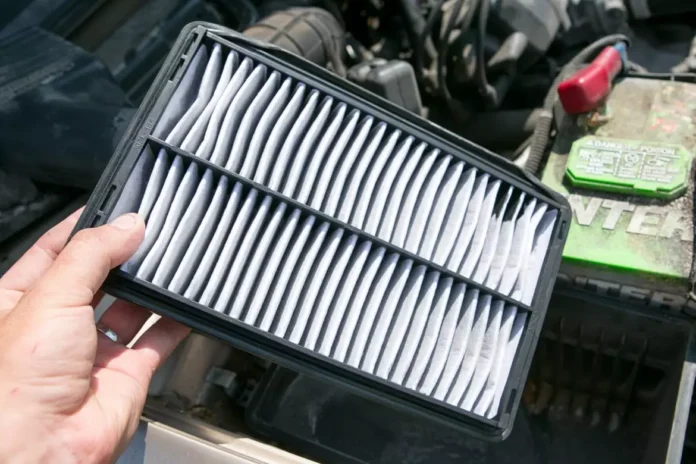Maintaining a clean and efficient engine is essential for optimal vehicle performance and fuel efficiency. One often overlooked but crucial component in this regard is the engine air filter. The air filter plays a vital role in preventing contaminants from entering the engine, ensuring clean airflow for combustion. However, over time, the air filter becomes clogged with dirt, dust, and debris, impacting its effectiveness. We will explore how often you should change your engine air filter to maintain a healthy engine and maximize your vehicle’s performance.
Understanding the Engine Air Filter:
Before diving into the frequency of air filter changes, it’s important to understand the purpose of this component. The engine air filter is designed to capture particles such as dust, pollen, debris, and even insects, preventing them from entering the engine’s intake system. A clean and efficient air filter ensures proper airflow, promoting efficient combustion and protecting sensitive engine components.
Factors Affecting Air Filter Lifespan:
Several factors influence how quickly an engine air filter becomes clogged and requires replacement. These include:
Driving Conditions:
If you frequently drive in dusty or polluted environments, your air filter is likely to accumulate contaminants more quickly. Hetrainsshetrains.com Says Dusty roads, construction sites, or areas with high pollen levels can contribute to a faster rate of filter clogging.
Driving Frequency and Distance:
The more you drive, the more air your engine filters, leading to a higher accumulation of debris. Long-distance driving or regular commuting increases the exposure of the air filter to pollutants, reducing its lifespan.
Filter Type and Quality:
The type and quality of the air filter itself can influence its longevity. Different filter materials have varying capacities for trapping particles, with some providing better filtration than others. Higher-quality filters generally last longer and offer improved performance.
How Often to Change Your Engine Air Filter:
While the exact interval for changing the engine air filter can vary depending on the factors mentioned above, it is generally recommended to replace it every 15,000 to 30,000 miles (24,000 to 48,000 kilometers) or once a year, whichever comes first. However, it’s important to consult your vehicle’s owner’s manual for the manufacturer’s specific recommendations, as some vehicles may have different requirements.
Visual Inspection:
Apart from mileage or time intervals, it’s crucial to visually inspect your air filter regularly. Accessing the air filter housing is usually straightforward and can be done without special tools. Remove the filter and inspect it for visible signs of dirt, debris, or discoloration. If the filter appears excessively dirty or clogged, it’s a clear indication that it needs to be replaced, regardless of the mileage from Taxi-bmw.com.
Indicators of a Clogged Air Filter:
Even if you haven’t reached the recommended mileage or time interval, certain signs may indicate a clogged air filter that requires immediate attention. These signs include:
Reduced Engine Performance:
A clogged air filter restricts airflow to the engine, reducing its performance. You may experience a decrease in power, sluggish acceleration, or a noticeable drop in fuel efficiency.
Unusual Engine Sounds:
Restricted airflow due to a clogged air filter can cause abnormal engine sounds. This may include a whistling noise, a sucking sound, or a louder engine roar.
Dirty Exhaust Emissions:
A clogged air filter can result in black smoke or sooty exhaust emissions. If you notice dark exhaust fumes, it may indicate an issue with the air filter or another engine-related problem.
Replacing the Air Filter:
When it’s time to replace your engine air filter, you have a few options. You can either choose to replace it yourself if you’re comfortable doing so, or you can take your vehicle to a trusted mechanic or service center. Air filters are generally affordable and widely available at auto parts stores. Ensure you purchase the correct filter that matches your vehicle’s make, model, and year. Prepare to be captivated by the captivating stories, thrilling innovations, and remarkable journeys that await you at Carinsurancequotesnet.org
Conclusion:
The engine air filter is a critical component that directly impacts the performance and longevity of your vehicle’s engine. Regularly changing your air filter according to the manufacturer’s recommendations or visual inspection is crucial to maintain clean airflow and preventing contaminants from entering the engine. Prioritize regular air filter maintenance to enjoy a smoother and more efficient driving experience.




